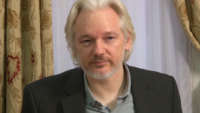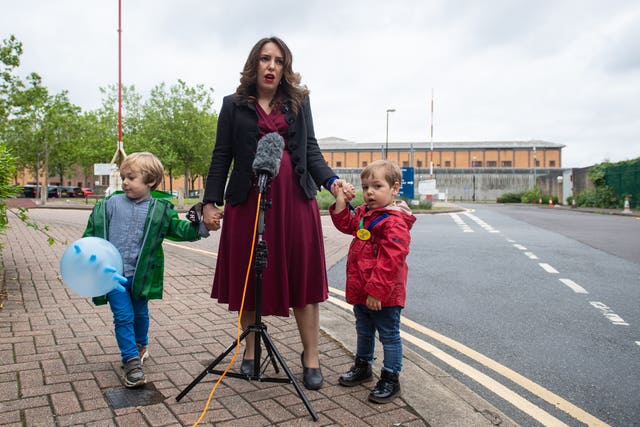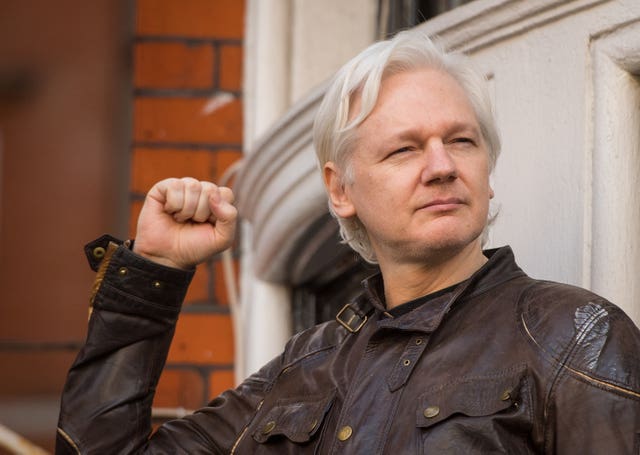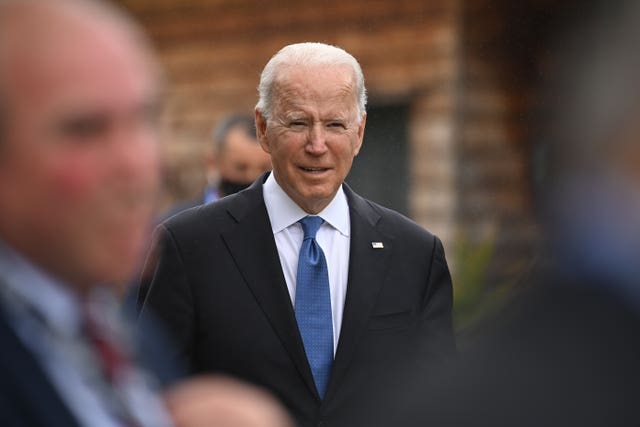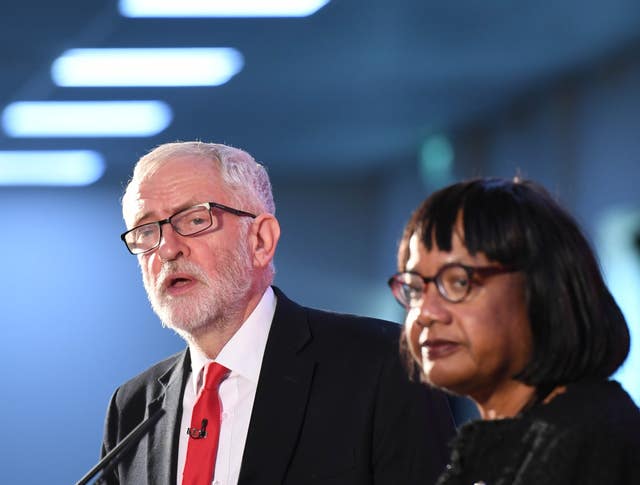
In contrast to Media Lens modestly marking a mere two decades in July, the Guardian has been deluging itself with praise on reaching two centuries this year. Not that we would expect otherwise. As editor Katherine Viner proclaimed in a long, celebratory essay:
‘The Guardian is not the only newspaper to declare that it has a higher purpose than transmitting the day’s events in order to make a profit. But it might be unique in having held on to that sense of purpose for two centuries.’
From her editor’s throne, Viner portrayed the paper as a kind of collective enterprise rooted in a socially-aware commune:
‘journalists must be part of the social fabric of the world they report on. The Guardian is a community of journalists and readers, all of us equal citizens of that community.’
It is difficult to square such pious words with the reality that Guardian moderators prowl the online comments on the Guardian website, ready to instantly delete critical remarks posted by the public. As one Guardian reader noted recently on Twitter:
‘My comment comparing the detention of the journalist in Belarus with what is being done to Craig Murray and Julian Assange in the UK has been deleted by the mods at The Guardian within seconds.’
For Viner, awkward readers like this are simply ostracised and no longer deemed part of the ‘Guardian’s community’. They are not allowed to besmirch her shining vision that the Guardian is:
‘a newspaper built on facts and guided by its values, a newspaper with a moral as well as a material existence.’
Throughout her essay, the rhetoric flooded out:
‘Our mission is based on a moral conviction: that people long to understand the world they are in, and to create a better one. To use our clarity and imagination to build hope.’
Yet more purple prose gushed forth:
‘we have roots, we have principles, we have philosophy, we have values.’
It takes a certain blinkered mindset, honed through faithful service to the Guardian bubble and ideological navel-gazing, to believe this guff. In almost 6,000 words, there was no hint of critical self-reflection by Viner. There was certainly no mention of Julian Assange, the courageous WikiLeaks co-founder and publisher of copious evidence of US war crimes whom the Guardian exploited, discarded and smeared.
Guardian Smearing Of Chomsky And Assange
Assange and WikiLeaks did, however, make it into a 64-page supplement, ‘We were there: The 200 moments that made the Guardian’, included with the print version of the newspaper on Saturday, 8 May. The piece was written by Ian Katz, a former Guardian deputy editor who left to become editor of BBC Newsnight in 2013, and is now Director of Programmes at Channel 4. This is pretty much the full set of prized media destinations in the career of a successful liberal journalist. The fact that his career was not derailed by an infamous media episode in 2005, during his Guardian years, speaks volumes.
Katz was then the Guardian editor responsible for the G2 section of the paper which published a notorious interview by Emma Brockes smearing Noam Chomsky. Addressing the Balkan Wars in the former Yugoslavia and, in particular, the Srebrenica massacre, Brockes had written of Chomsky’s view as: ‘witheringly teenage; like, Srebrenica was so not a massacre.’ As we discussed at the time, this was a deceitful distortion of the truth: Chomsky has never denied that a massacre took place in Srebrenica. In an open letter, Chomsky himself described the Guardian piece as ‘a scurrilous piece of journalism’. The paper was flooded with readers’ complaints, the readers’ editor investigated the case, an apology of sorts was issued, and the interview subsequently taken down. No Guardian editor or journalist has made reference to this disgraceful and deeply embarrassing episode in any of their valedictory retrospective accounts.
In Katz’s piece on WikiLeaks (only available in print, and not online), he repeated an outrageous quote attributed to Julian Assange by David Leigh, the former Guardian investigations editor. In 2010, Guardian staff and Assange were working together in a Guardian ‘bunker’ on hundreds of thousands of US military records and US embassy cables. Katz gave the official Guardian version of events:
‘Our biggest disagreement blew up over the question of whether confidential sources identified in the documents deserved protection. All the traditional journalists involved in the project took it as read that we would redact the names of any informants who could be put at risk by our publishing the documents. Assange saw it differently. “They’re informants,’ he told Leigh. “So if they get killed they’ve got it coming to them.”’
This account, to put it politely, is disputed. In fact, Assange has stated that the quote is ‘completely fabricated’. John Goetz, a journalist from Der Spiegel, was present at the dinner in a London restaurant where Leigh claimed Assange made the remark. Goetz has affirmed that Assange made no such remark. Moreover, Mark Davis, a multi-award winning Australian journalist who was present in the ‘bunker’ with Assange throughout the preparation of the Afghan War Logs, has exposed the shameful role of the Guardian in its dealings with Assange, accusing them of ‘slanders’ and ‘lies’ (further details and quotes are here).
As the progressive website Consortium News reported:
‘Most shocking in these revelations is Mark Davis’s account of how the Guardian journalists neglected and appeared to care little about redacting the documents. They had a “graveyard humour” about people being harmed and no one, he stated emphatically, expressed concern about civilian casualties except Julian Assange…Assange had subsequently requested that the release of the Afghan War Logs be delayed for the purpose of redaction, but the Guardian not only insisted on the agreed date, they abandoned him to redact 10,000 documents alone.’
Katz included none of this in his account. And Viner’s silence on Assange is telling. As is her seeming refusal ever to discuss, far less apologise for, the fake front-page ‘news’ story the paper published in November 2018 claiming that Paul Manafort, Donald Trump’s former campaign manager, supposedly held secret talks with Assange in the Ecuadorian Embassy in London. It was another fabricated story about the WikiLeaks publisher. And all part of a smear-based propaganda campaign that led to him being forcibly removed from the Embassy and locked away in the high-security Belmarsh prison, at risk of being extradited to the US to face life imprisonment. Recall that Nils Melzer, the UN Special Rapporteur on Torture, has declared unequivocally that Assange is a victim of torture. Melzer has demanded, along with many other lawyers, human rights organisations and members of the public, that Assange be freed.
Guardian Distortion ‘Beggars Belief’
Likewise, an essay in the New York Review by Alan Rusbridger, Viner’s predecessor in the editor’s chair, was long on Guardian mythology and short on critical self-analysis. Towards the end, a few tokenistic references were made to chapters that had pulled their punches in a new book about the Guardian’s history, ‘Capitalism’s Conscience’, edited by media academic Des Freedman and put under the microscope in a recent media alert. In fact, as we suspected would happen, Rusbridger leaned on the book to boost the paper’s supposed bona fides:
‘Capitalism’s Conscience does acknowledge remarkably positive and progressive aspects of The Guardian’s more recent history, including in-depth coverage of the developing world, a better-than-some track record on diversity, a commitment to investigative reporting, and a balanced approach to Brexit.’
But Rusbridger avoided any observations by the book’s more hard-hitting contributors. For example, Alan MacLeod had noted of the paper’s coverage of Latin America:
‘far from embracing the “Pink Tide” [the grassroots progressive movements across Latin America], the Guardian has, for the most part, chosen to side with Western governments and reject it, often displaying a shocking lack of understanding of the continent. Indeed, the distortion with which it presents Latin America is so startling it often beggars belief.’
MacLeod added that the Guardian’s ‘tone and outlook [are] often so conservative that it is indistinguishable from the Daily Telegraph in its reporting of the continent.’
He directly implicated the current editor:
‘Katharine Viner describes the newspaper’s mission as “holding the powerful to account” and “upholding liberal values”. Yet when it comes to Latin America, it has attacked progressive movements attempting to further those values, while often failing to hold the region’s right-wing rulers to the same standard. It has been necessary to do this, lest British readers are inspired, like Corbyn was, to try the same thing at home.’
Moreover, in their chapter on ‘The Guardian and Surveillance’, Matt Kennard and Mark Curtis note what happened after the paper revealed secret US government documents leaked by National Security Agency contractor Edward Snowden. Security services and the Ministry of Defence were so concerned by the revelations that, on 20 July 2013, GCHQ officials entered the Guardian’s offices at King’s Cross in London. At the request of the government and security services, Guardian deputy editor Paul Johnson and two colleagues spent three hours destroying the laptops containing the Snowden documents.
Afterwards, the Defence and Security Media Advisory Committee, known as the D-Notice Committee, increasingly placed pressure on the Guardian to refrain from publishing information that would ‘jeopardise both national security and possibly UK personnel’. A combined charm and threat offensive to make the Guardian play ball ultimately paid off when Paul Johnson accepted an invitation to sit on the D-Notice Committee. He attended his first meeting in May 2014 and remained on the committee until October 2018. As Kennard and Curtis observed:
‘The Guardian’s deputy editor went directly from the corporation’s basement with an angle-grinder to sitting on the D-Notice Committee alongside the security service officials who had tried to stop his paper publishing the Snowden material.’
The authors give some credit to Rusbridger who ‘withstood intense pressure not to publish some of Snowden’s revelations’, but note that things changed when Viner was appointed editor in March 2015. Critical coverage of UK intelligence services thereafter dropped dramatically. Moreover, soft-pedalling ‘exclusives’ appeared with senior intelligence and counter-terrorism chiefs highlighting the supposed ‘threat’ of foreign states, notably Russia.
Kennard and Curtis wrote:
‘While some articles critical of the security services still appear in the paper, its “scoops” have increasingly focused on issues more acceptable to them. In the years since the Snowden affair, the Guardian does not appear to have published any articles based on intelligence or security services sources that were not so to speak “officially sanctioned”.’
In a recent piece with the apt title, ‘Like billionaire-controlled media, The Guardian misinforms its readers on the UK’s role in world’, Curtis pointed out that:
‘while it sometimes exposes how the British establishment works, it acts largely in support of it – and that in recent years it has largely shredded the capacity it once had to do more independent, investigative reporting.
‘The paper’s political positioning, on the right wing of Labour and mainstream of the US Democratic Party, always suggested it would act to stave off more fundamental change when the time came. With Corbyn, this was clearly borne out.’
Behind The Façade Of Guardian ‘Liberalism’
Long-time readers of Media Lens will be well aware that we have written several books and hundreds of media alerts exposing the Guardian’s propaganda role in shoring up the status quo. But nothing of this mountain of evidence, nor the examples cited earlier in this alert, disturbed the haughty, self-satisfied triumphalism of Viner and Rusbridger.
Also notably lacking from the Guardian’s numerous retrospectives, including a fashion piece on ‘200 years of newsroom style: what journalists wear to work’, was the consistent Guardian protection of establishment power for two centuries. This uncomfortable truth was superbly exposed in an historical overview, titled ‘50,000 editions of the imperialist, warmongering, hate-filled Guardian newspaper’, first published by author Murray McDonald in 2007 when the paper celebrated its 50,000th issue.
A crucial component of the haloed Guardian mythology, featuring prominently in both Rusbridger’s and Viner’s accounts, is its founding in Manchester in 1821 by John Taylor as a supposed radical paper championing the victims of the Peterloo Massacre. In 1819, eighteen people died when cavalry charged into a crowd of around 60,000 people who had gathered in St Peter’s Field, Manchester, to demand the reform of parliamentary representation.
McDonald wrote:
‘What the Guardian forgot to say was that Taylor launched his paper to undermine the working class leaders of the reform movement; or that Taylor refused to use either word “Peterloo” or “Massacre”, thinking them too inflammatory.’
The paper has never been a reliable supporter of popular opposition to establishment power. In fact, worse than that, the Guardian:
‘has been deeply hostile to the working class, especially when they have taken matters into their own hands.’
As just one early example:
‘When Women Suffragettes fought for the vote, Guardian editor C.P. Scott denounced them as fanatics, just as the Manchester Guardian opposed giving the working classes the vote before.’
Historically, the Guardian actually derided movements against British imperialism and colonialism:
‘Over the years, much of the newspaper’s venom has been reserved for opposition movements. The Guardian had a particular contempt for anti-imperialist movement[s], pouring scorn on Third World nationalists like [Patrice] Lumumba [of Congo] and [Gamal] Nasser [of Egypt], advocating military intervention across the globe.’
McDonald added:
‘And when Abraham Lincoln fought a Civil War against slavery, the Manchester Guardian rallied to defend the southern Slave-Owners.’
In more modern times, the Guardian – apart from mild criticism here and there towards the end of Tony Blair’s time in Downing Street – has been a stalwart cheerleader for the former Prime Minister. This bizarre nostalgic longing for the New Labour era continues to this day, even though Blair’s hands are steeped in the blood of over one million dead people in Iraq, Afghanistan and elsewhere.
Arguments for ‘humanitarian intervention’ were honed by the Guardian in its reporting of the former Yugoslavia in the 1990s, as McDonald noted, ‘demonising the enemy, talking up the humanitarian crisis, and pushing for military action’.
Viner and Rusbridger airbrush all of this from their glowing ideological narratives of the paper. But reading closely between the lines is instructive and hints at the grim truth. Consider Rusbridger’s curiously-worded claim that ‘the paper can disappoint the left and anger the right.’ He gave this example:
‘The most recent disappointment for those on the left was the paper’s failure—as they saw it—to wholeheartedly embrace Jeremy Corbyn’s leadership of the Labour Party.’
This is truly outrageous spin. In fact, the Guardian played a key role in the propaganda blitz that scuppered Corbyn’s chances of becoming Prime Minister and making any move towards a more equal society that the Guardian supposedly champions.
Keyvan Minoukadeh of the website fivefilters.org diligently monitored the relentless Guardian attacks on Corbyn over the two-year period from 2015-2017. He observed that there was a slight let-up towards the end of this period, perhaps because Guardian editors were worried that they had alienated too many readers. But then:
‘After a short pause, the paper continued and intensified its attacks, this time spreading spurious and damaging claims of anti-semitism.’
In short, the paper failed to ‘wholeheartedly embrace Jeremy Corbyn’s leadership’ in much the same way that a kestrel fails to wholeheartedly embrace a mouse when swooping down for its prey.
The late Tony Benn had it right:
‘The Guardian represents a whole batch of journalists…who, broadly speaking, like the status quo…are very critical of the left…They just are the Establishment. It is a society that suits them well.’
As we saw above, Viner’s florid account of her beloved paper overflowed with worthy words about principles, values, roots, morals, and a ‘mission based on a moral conviction’ to ‘create a better’ society and ‘to build hope’. These claims are cruel deceptions because the reality is far different. In truth, the Guardian has long played a liberal gatekeeper role, corralling and deflecting the threat of real public opposition to elite power.
A newspaper predicated on ‘liberal values’ has a crucial role to play in the propaganda system. As Noam Chomsky has long observed, such a paper delimits the ‘acceptable’ limits of news reporting and commentary: ‘Thus far, and no further’. To be truly effective, the ‘mainstream’ media must appear to be relatively free and open. For this reason, added Chomsky:
‘liberal bias is extremely important in a sophisticated system of propaganda.’
The Guardian epitomises this vital function.
Jonathan Cook, a former Guardian reporter who is now an independent, reader-supported journalist, put it this way:
‘The role of corporate media is to serve as a figurative sheep-dog, herding journalists each day into an ideological pen – the publication they write for. There are minor differences of opinion and emphasis between conservative publications and liberal ones, but they all ultimately serve the same corporate, business-friendly, colonial, war-mongering agenda.’
Just consider one salient fact. Absent from the Guardian – and the entire ‘mainstream’ media – is any sustained, substantive reporting about the economic system that is driving climate breakdown and mass extinction of species. A recent video titled, ‘Why Capitalism Can’t Handle Climate Change’, from Second Thought, an educational YouTube channel presenting analysis of current events from a Leftist perspective, encapsulates the most pressing crisis today:
‘If we want to ensure a liveable future for the human race, we must move past capitalism. Capitalism is incapable of solving the problems it creates. It is entirely beholden to the profit motive, and no amount of flowery language, greenwashing or reform will ever change that.
Sweep aside the paper’s lofty rhetoric, and it is clear that the Guardian has long been a component of power that is currently driving humanity towards extinction.

The post
Two Centuries Of ‘The Imperialist, Warmongering, Hate-Filled Guardian’ first appeared on
Dissident Voice.
This content originally appeared on Dissident Voice and was authored by Media Lens.
This post was originally published on Radio Free.
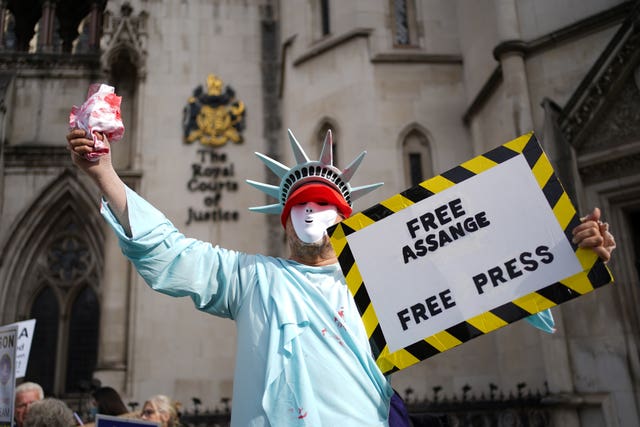

 PRESS RELEASE: Craig Murray to be first person incarcerated in the UK over media contempt case in 50 years, setting dangerous legal precedent for freedom of speech and equality before the law.
PRESS RELEASE: Craig Murray to be first person incarcerated in the UK over media contempt case in 50 years, setting dangerous legal precedent for freedom of speech and equality before the law.
 In late 2002, Vulliamy, a veteran and much trusted reporter, persuaded Mel Goodman, a former senior CIA official who still had security clearance at the agency, to go on record that the CIA knew there were no WMD in Iraq – the pretext for an imminent and illegal invasion of that country. As many suspected, the US and British governments had been telling lies to justify a coming war of aggression against Iraq, and Vulliamy had a key source to prove it.
In late 2002, Vulliamy, a veteran and much trusted reporter, persuaded Mel Goodman, a former senior CIA official who still had security clearance at the agency, to go on record that the CIA knew there were no WMD in Iraq – the pretext for an imminent and illegal invasion of that country. As many suspected, the US and British governments had been telling lies to justify a coming war of aggression against Iraq, and Vulliamy had a key source to prove it.







